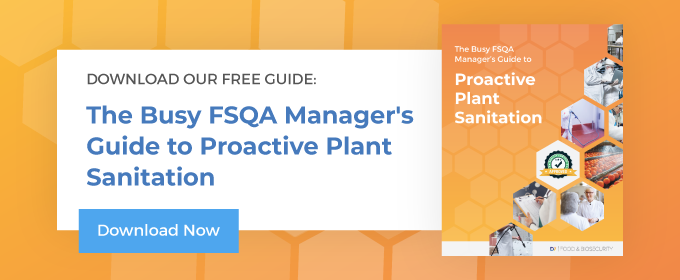
It’s been a lively month for the food safety industry, with more beef recalls, the annual Food Safety Summit, and new studies that could potentially enable the industry to become more proactive in preventing outbreaks.
The Beef Recall Continues
The beef industry has had a challenging year with ongoing recalls of products that were tainted with E. coli. The latest recalls are related to strains of both E. coli O157:H7 and E. coli O103.
According to Food Safety News, one US-based company recalled more than 62,000 pounds of raw beef because of potential E. coli O157:H7 contamination.* The company had previously recalled more than two tons of beef for the same reasons in March of this year.
Food Safety Magazine provided updated CDC figures related to an E. coli O103 outbreak caused by contaminated ground beef. So far, 196 illnesses and 28 hospitalizations have been reported across 10 states. At least two companies had recalls because of E. coli O103 in April, and it’s possible that others will be identified as the investigation continues.
In response to the major beef recall of 2018 and the ongoing issues that continue to arise, D7 wrote a blog post about what food sanitation professionals can learn from these incidents and how future outbreaks can be prevented.
Food Safety Professionals Convene
The annual Food Safety Summit provided an opportunity for industry professionals to gather, share their expertise, and learn about cutting-edge solutions. Michael Taylor, co-chair of the Stop Foodborne Illness Board and former deputy commissioner for food for the FDA, delivered the keynote speech, “What Will Drive Future Food Safety Progress?”
According to an account of the speech in Food Safety Magazine, the answer is threefold:
- Consumer demand
- Industry change and innovation
- Government policy change
In the past, these three factors have come together in moments of crisis, which is when the most significant policy changes have taken place. The big question remains: What sweeping changes will happen because of the romaine lettuce E. coli outbreak of 2018? The speaker commented that food safety tools, such as real-time traceback and trace forward, are now available, leaving little excuse for lack of implementation.
Decon7 was also present at the summit, providing information about D7, one of the cutting-edge solutions companies can employ to reduce the risk of outbreaks. The patented EPA registered chemical solution is a proven disinfectant and cleaner which reduces at least 99.9999 percent of bacteria** growing in biofilm, and the easy-to-apply foam enables efficient and effective sanitation on a regular basis.
New Research Studies
The scientific research that was reported this month has both bad news and good news. The bad news first: Salmonella outbreaks may become more severe in the future. Researchers at the University of Sydney found that Salmonella networks are genetically linked to each other through just a few degrees of separation. This discovery indicates that there is strong potential for Salmonella to develop aggressive strains that could lead to worse outbreaks.
Public health microbiologist Professor Vitali Sintchenko said, “Our paper was able to identify how the Salmonella pathogen evolves and mutates and can help us better understand what influences it to adapt, change and strengthen. Working alongside pathogen researchers, public health authorities and the fresh food industry, this network mapping will help predict future outbreaks by understanding Salmonella behavior.”
Now for the good news. A study that reviewed how a South African lab responded to a Listeria outbreak indicated that their performance was “remarkable.” This high praise is a result of the lab’s ability to handle increased demand, which contributed to the relatively short eight-month timeline to address the largest ever reported outbreak of listeriosis. The lab, which has a limited staff of just six people, used whole genome sequencing and epidemiological data to determine the source of the outbreak.
No News Is Good News
If you don’t want your company or the foods you process to be the latest hot topic in food safety news, take a proactive approach. The Busy FSQA Manager’s Guide to Proactive Plant Sanitation is a free resource you can use to develop systems that will help reduce the risk of an outbreak. Get your copy today!
** Staphylococcus aureus and Pseudomonas aeruginosa

